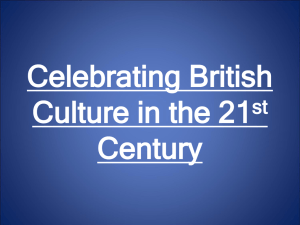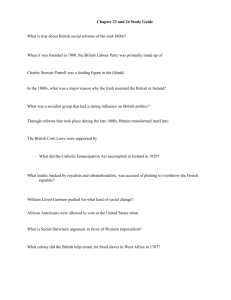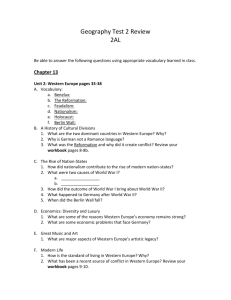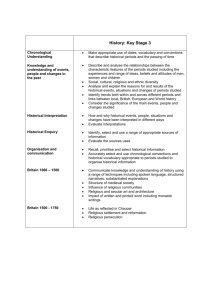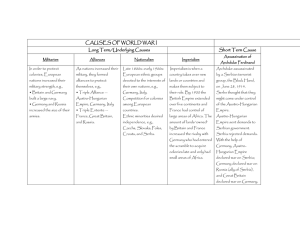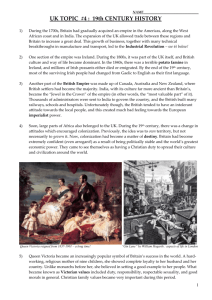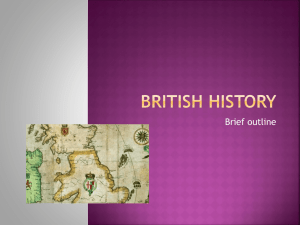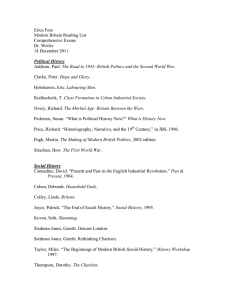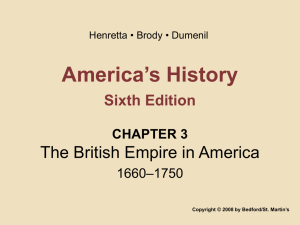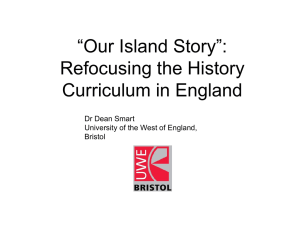MER Policy & Handbook Scheme of Work Medium Term Planning
advertisement
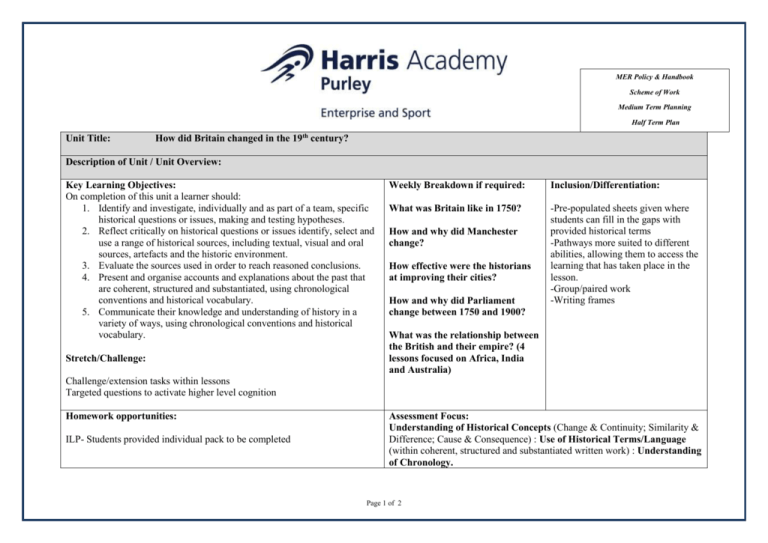
MER Policy & Handbook Scheme of Work Medium Term Planning Half Term Plan Unit Title: th How did Britain changed in the 19 century? Description of Unit / Unit Overview: Key Learning Objectives: On completion of this unit a learner should: 1. Identify and investigate, individually and as part of a team, specific historical questions or issues, making and testing hypotheses. 2. Reflect critically on historical questions or issues identify, select and use a range of historical sources, including textual, visual and oral sources, artefacts and the historic environment. 3. Evaluate the sources used in order to reach reasoned conclusions. 4. Present and organise accounts and explanations about the past that are coherent, structured and substantiated, using chronological conventions and historical vocabulary. 5. Communicate their knowledge and understanding of history in a variety of ways, using chronological conventions and historical vocabulary. Stretch/Challenge: Weekly Breakdown if required: Inclusion/Differentiation: What was Britain like in 1750? -Pre-populated sheets given where students can fill in the gaps with provided historical terms -Pathways more suited to different abilities, allowing them to access the learning that has taken place in the lesson. -Group/paired work -Writing frames How and why did Manchester change? How effective were the historians at improving their cities? How and why did Parliament change between 1750 and 1900? What was the relationship between the British and their empire? (4 lessons focused on Africa, India and Australia) Challenge/extension tasks within lessons Targeted questions to activate higher level cognition Homework opportunities: ILP- Students provided individual pack to be completed Assessment Focus: Understanding of Historical Concepts (Change & Continuity; Similarity & Difference; Cause & Consequence) : Use of Historical Terms/Language (within coherent, structured and substantiated written work) : Understanding of Chronology. Page 1 of 2 In what ways did the average life expectancy of people in Britain change during the 19th Century? Why did towns and cities increase in size so quickly during the 19th Century? “Getting clean water to their houses mattered more to poor people in the 19th Century than getting the vote.” Do you agree with this claim? Cross Curricular Opportunities: Literacy: Students will be using all the above skills through evaluating and reading sources, written work as outlined above. Speaking in class and grouped discussions. Enterprise: Teamwork Creativity Problem Solving Decision Making Communication Presenting Reflecting/ Evaluating NUMERACY: Digital Learning: Students Use of IWB, video and audio Laptops/PC to research homework. SMSC: Understanding the diverse experiences and ideas, beliefs and attitudes of men, women and children in past societies and how these have shaped the world. Chronology and timeline of the British Empire period. Students will be using the chart of empire map. Page 2 of 2
